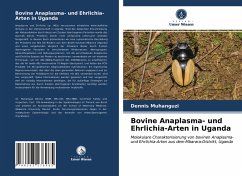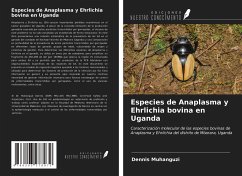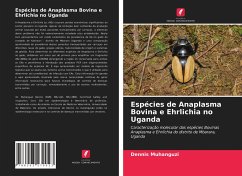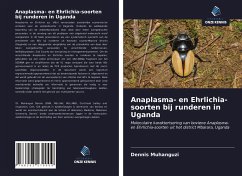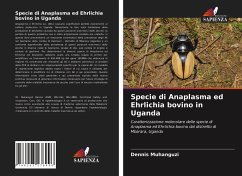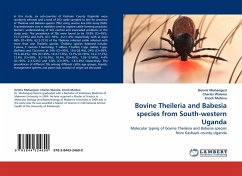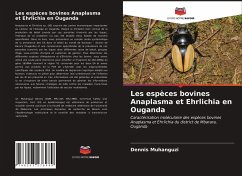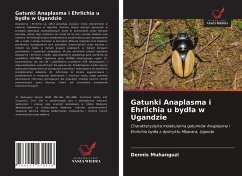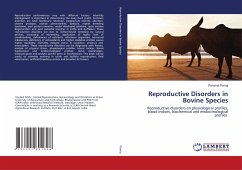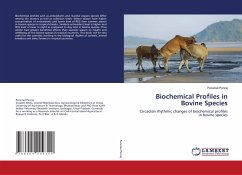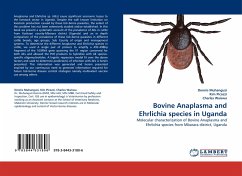
Bovine Anaplasma and Ehrlichia species in Uganda
Molecular characterization of Bovine Anaplasma and Ehrlichia species from Mbarara district, Uganda
Versandkostenfrei!
Versandfertig in 6-10 Tagen
32,99 €
inkl. MwSt.

PAYBACK Punkte
16 °P sammeln!
Anaplasma and Ehrlichia sp. (AEs) cause significant economic losses to the livestock sector in Uganda. Despite the well known limitation on livestock production caused by these tick-borne parasites, the extent of this problem has not been extensively studied and/or established. In this book we present a systematic account of the prevalence of AEs in cattle from Kashaari county-Mbarara district (Uganda) and an in depth comparison of the prevalence of these tick-borne parasites in different cattle breeds, age groups, Sub County of origin and management systems. To determine the different Anaplas...
Anaplasma and Ehrlichia sp. (AEs) cause significant economic losses to the livestock sector in Uganda. Despite the well known limitation on livestock production caused by these tick-borne parasites, the extent of this problem has not been extensively studied and/or established. In this book we present a systematic account of the prevalence of AEs in cattle from Kashaari county-Mbarara district (Uganda) and an in depth comparison of the prevalence of these tick-borne parasites in different cattle breeds, age groups, Sub County of origin and management systems. To determine the different Anaplasma and Ehrlichia species in cattle, we used A single pair of primers to amplify a 492-498bp fragment of the 16SRNA gene spanning the V1 region conserved for both AEs and allowed the PCR products to hybridize with AE species-specific oligonucleotides. A logistic regression model fit over the above factors and used to determine predictor(s) of infection with AEs is herein presented. This information was generated and herein presented inspired by our continuous need to generate information required for future tick-borne disease control strategies namely multivalent vaccine use among others.



